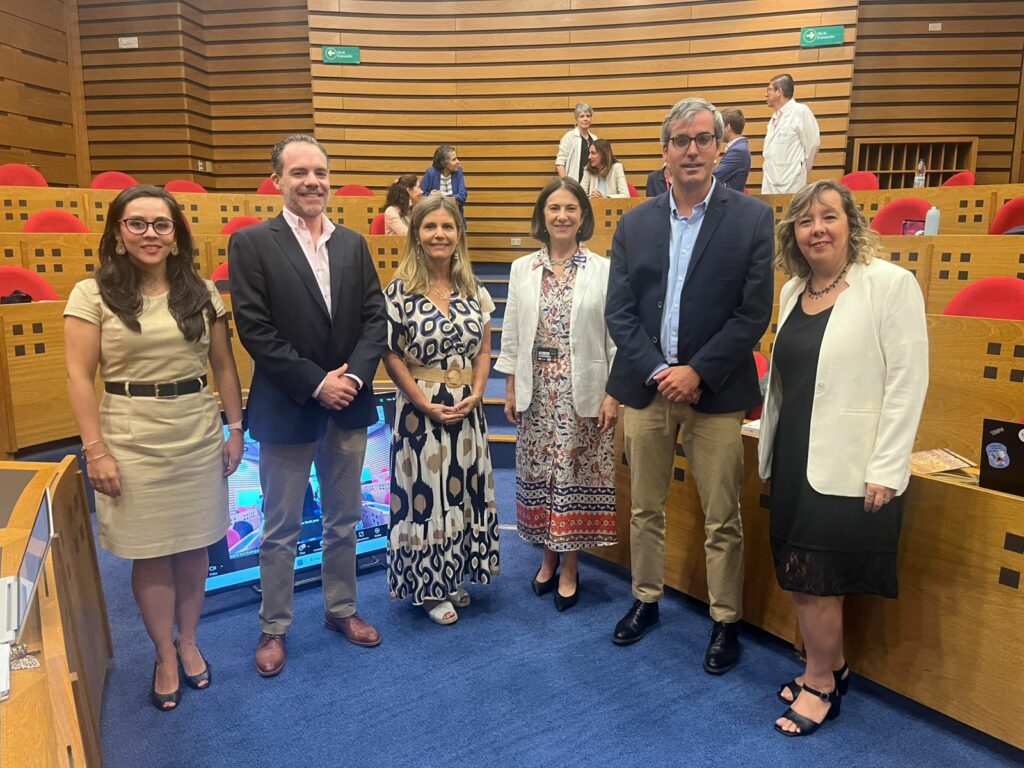31 January 2025
In the context of the debate on this practice in Chile, and in view of the recent presentation of a bill that seeks to prohibit it, the first Latin American Meeting of the Casablanca Declaration, an initiative that promotes the protection of women and children from gestational surrogacy, was held at the University of the Andes on 31 January 2025.
‘The bill presented in the Chamber of Deputies by a cross-cutting group of parliamentarians proposes to strengthen sanctions against doctors, health personnel and health establishments that participate in the transfer of embryos to a woman who, through an agreement, commits to hand over the newborn to third parties, whether or not they are the biological parents,’ explains María Sara Rodríguez, an academic at the Universidad de los Andes.
One of the main objectives of the meeting was to analyse the current legislative status and jurisprudential development on surrogacy in Ibero-American countries, as well as to identify the differences that exist in the different countries studied.
The preliminary findings of the study show that the Ibero-American region generally lacks specific legislation on surrogacy. As a result, national courts have approached the phenomenon from diverse perspectives, developing disparate jurisprudential criteria to address its ethical and legal challenges.
‘Surrogacy has been the subject of multiple legislative projects,’ says Lorena Bolzon, Dean of the Institute of Family Sciences at Argentina’s Austral University. ‘In Argentina, for example, the issue has been debated in the courts in more than 50 cases, and even the Supreme Court of Justice recently ruled in favour of recognising the surrogate as the mother of the child.
Among the main problems associated with surrogacy are the exploitation of women, trafficking and the buying and selling of minors.
The contract whereby one or more principals agree with a woman that she will bear one or more children for delivery at birth, whatever the name and terms of the contract (Casablanca Declaration) is known as surrogacy. This practice raises profound questions in terms of human rights, filiation, reproductive exploitation and human trafficking.
In Chile, the practice is contrary to both the Civil Code and constitutional norms. Rodriguez stresses that Chilean law guarantees the attribution of maternity to the woman who gives birth, the non-transferability of civil status and the right to identity for all persons. ‘The current bill seeks to prevent Chile from becoming a destination for reproductive tourism through a system of sanctions that is not limited only to the civil sphere,’ she adds.
The study is being conducted by a team of researchers from eight countries: Argentina, Brazil, Chile, Colombia, Spain, Mexico, Peru and Uruguay.
They participated in a debate on whether surrogacy should be universally abolished:
Diana Muñoz, U. de la Sabana, Colombia ; Gonzalo Galvez, U de Piura, Perú ; Sofía Salas, U del Desarrollo ; Bernard Garcia Larrain, Coordinador de la Declaración de Casablanca; Lorena Bolzon, U Austral, Argentina

